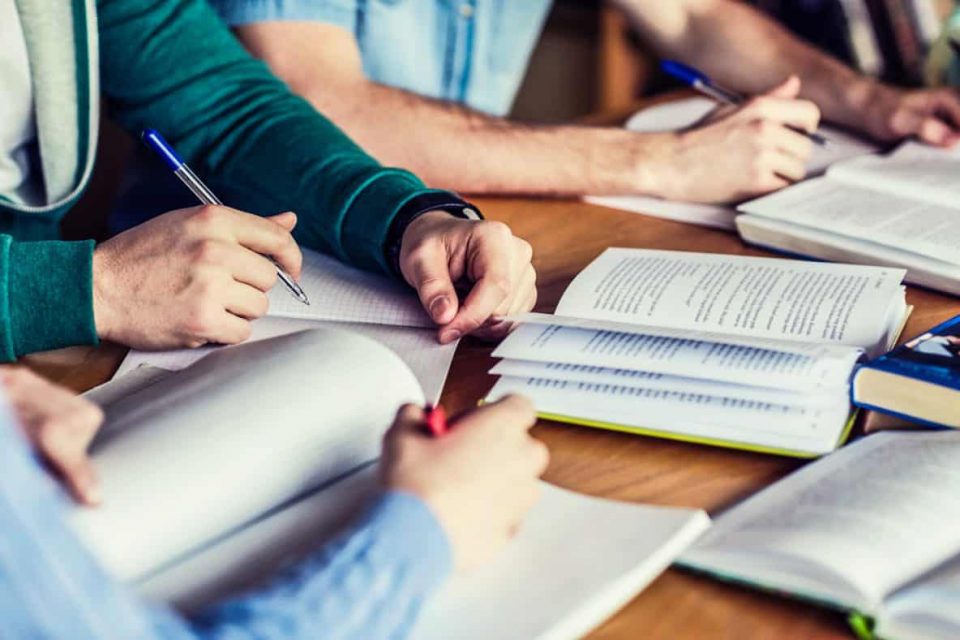Students all over the world regularly face immense struggles over the proper techniques and tricks for how to study more efficiently and effectively. Studying more efficiently can definitely help make exams easier to complete and be less stressful.
Moreover, it can also help in your productivity in class and encourage a boost in your grades. Using our techniques, you can also have much more free time to spend however you want to, instead of studying hard with little to no outcome when you could’ve efficiently studied and achieved more with less time.
- Be More Organised
Being organised is essential so that you don’t forget to do your homework or forget to prepare for your exams. You can easily do this by writing down your homework, exam, or project deadlines in your reminders on your phone, in your calendar, homework planner, journal, and many more places. You should also try and submit your homework and projects earlier or on their due date so you won’t forget about them. Start organising your study space if it’s messy, as a cluttered table can distract you.
- Make a Study Plan
Make a study planner plan your study time so that you can be more effective. Stop putting everything to the side and only studying the night before the exam, seeing that there is a big pile of notes, worksheets, and homework is just going to make your motivation deteriorate. Assign periods within your schedule for studying and stick to the plan. You can change the schedule a little bit but try not to change it too much! Make sure that you give yourself more time than you think you’ll need, especially if it’s a subject that you struggle with.
- Take Notes
Listen carefully and attentively while noting all of the important key points into your notebook, at the same time that the teacher or professor is explaining. This can improve your grades. Completing notes about a subject can make studying for a test so much easier. Also, don’t be shy to ask your professor or teacher questions if you still don’t understand the topic or need further explanations. This can clear up misunderstandings and help you study with minimal conflicts. You can make an appointment with your teacher to consult with them after class.
- Study Smarter, Not Harder
There are a plethora of ways you can study for your upcoming exam but here are a few proven strategies to study effectively. When studying for an exam, you should try to re-do your previous quizzes. Quizzes have less topic coverage than exams; therefore you will only need to revise from the current section or chapter. If you can’t find any practice quizzes or worksheets, try working with a study partner to create your own quizzes to test each other’s retention of the material learned. The way I find the most effective to memorise key points is to make flashcards for your topic. Some of the top students use this technique. The flashcard strategy can help you memorise the topic easily at hand. There are other techniques such as active recall, the Leitner System, taking practise tests, and using the Feynman notebook method. You can also play a memory game to help make reviewing more fun! Use acronyms or make songs that will help you memorise.
- Have a Positive Mindset
Have a positive mindset when you sit down to study. When you are emotionally distracted, you will be less effective and it will be harder for you to digest the information. Try to think positively and not compare yourself to others. Try saying something positive before you start studying, along the lines of “I will get a good grade!” When you find yourself thinking about negative thoughts such as “I will fail this exam”, stop and replace it with “I will pass this exam” or any other positive thoughts.
- Find a Peaceful Spot with Minimal Distractions
The place where you study determines how effective your study sessions are. Try to choose a place with not so much foot traffic. When you are distracted by other things, for example, your phone, your friends, or the television, you won’t study as effectively. Try to find a library to study in or you can try studying in a peaceful cafe, but be mindful not to hog the tables for too long since other customers will be unhappy. An alternative would be to study when your roommate or sibling is at school, work, or not at home.
7. Be Prepared with Necessary Supplies
Start studying when you have everything you need. For example, get all your stationery and the books you might need. If you think you might be hungry and thirsty while studying, prepare a snack and a drink so you don’t have to disturb your studying session.
- Things Not To Do
Countless numbers of people make these simple mistakes when studying, but it’s really easy to counter. The first one is multitasking. This mistake can easily divert your attention away from your study session and help demote active studying, as a result, it becomes harder to remember the key points that you need to learn. The second mistake is to focus on one subject or topic for way too long, it can easily make you feel burn out.
When you study effectively, you can have more free time and will start seeing good grades. It would be much easier to achieve your goal of better scores and less stress by applying these tips and tricks. Hopefully, these steps can aid you the same way it helped me and many other students, too. Now, let’s start studying!




